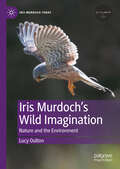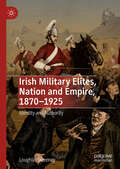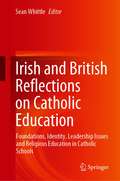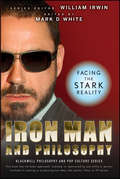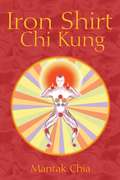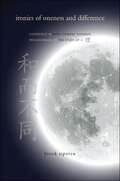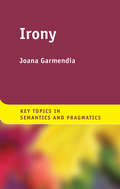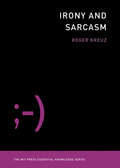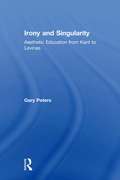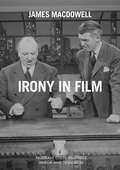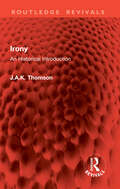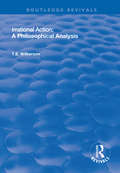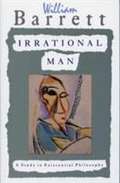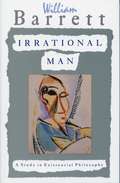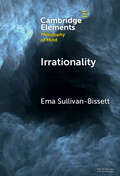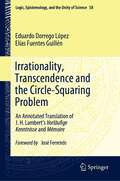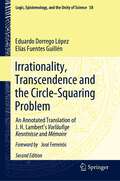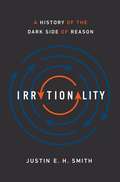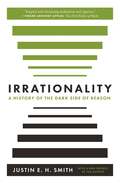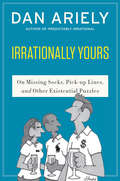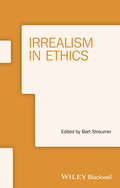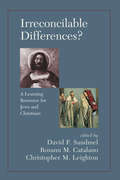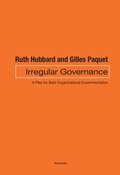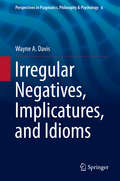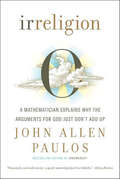- Table View
- List View
Iris Murdoch’s Wild Imagination: Nature and the Environment (Iris Murdoch Today)
by Lucy OultonThis book presents the first ecocritical study of novelist, philosopher, poet and public intellectual Iris Murdoch (1919–1999). It brings her love of the natural world into the light, arguing for its critical significance when Murdoch conveys an awareness of intricately interconnected ecologies through her work: an awareness that anticipates the motivations and concerns of modern-day environmental humanities. The book is the first of its kind to assess some of Murdoch's poems, seen as early articulation of the environmental imagination that finds recurrent expression in her novels, philosophical writings and personal journals throughout her writing life. This book offers a significant entry point for a new research direction in Murdoch studies by explicating her unique perspective on the natural world.
Irish Military Elites, Nation and Empire, 1870–1925: Identity and Authority
by Loughlin SweeneyThis book is a social history of Irish officers in the British army in the final half-century of Crown rule in Ireland. Drawing on the accounts of hundreds of officers, it charts the role of military elites in Irish society, and the building tensions between their dual identities as imperial officers and Irishmen, through land agitation, the home rule struggle, the First World War, the War of Independence, and the partition of Ireland. What emerges is an account of the deeply interwoven connections between Ireland and the British army, casting officers as social elites who played a pivotal role in Irish society, and examining the curious continuities of this connection even when officers’ moral authority was shattered by war, revolution, independence, and a divided nation.
Irish and British Reflections on Catholic Education: Foundations, Identity, Leadership Issues and Religious Education in Catholic Schools
by Sean WhittleThis volume presents an interdisciplinary and systematic review of Catholic Education Studies across Ireland and Britain. Taken together, the chapters drill down to the foundations, identity and leadership matters in Catholic education and schools. It is in reading the complete volume that a more precise picture of Catholic education in Ireland and Britain develops into sharper focus. This is important because it reflects and crystallises the complexity which has almost organically developed within the field of Catholic Education Studies. It also provides a powerful antidote to the naïve reductionism that would boil Catholic education down to just one or two fundamental issues or principles. Contemporary Catholic education, perhaps globally but certainly in Ireland and Britain, is best depicted in terms of being a colourful kaleidoscope of differing perspectives. However this diversity is ultimately grounded in the underlying unity of purpose, because each of the contributors to this volume is a committed advocate of Catholic education.The volume brings together a rich range of scholars into one place, so that these voices can be listened to as a whole. It includes contributions from leading scholars, blended with a plethora of other voices who are emerging to become the next generation of leading researchers in Catholic education. It also introduces a number of newer voices to the academic context. They present fresh perspectives and thinking about matters relating to Catholic education and each of them confidently stand alongside the other contributors. Moreover, these reflections on Catholic education are important fruits to have emerged from the collaboration made possible through the creation of the Network for Researchers in Catholic Education, which was established in 2016 under the auspices of Heythrop College, University of London.
Iron Man and Philosophy: Facing the Stark Reality (The Blackwell Philosophy and Pop Culture Series #14)
by William IrwinThe first look at the philosophy behind the Iron Man comics and movies, timed for the release of Iron Man 2 in March 2010 On the surface, Iron Man appears to be a straightforward superhero, another rich guy fighting crime with fancy gadgets. But beneath the shiny armor and flashy technology lies Tony Stark, brilliant inventor and eccentric playboy, struggling to balance his desires, addictions, and relationships with his duties as the Armored Avenger. Iron Man and Philosophy explores the many philosophical issues that emerge from the essential conflicts found in the decades of Iron Man stories in comics and movies. What kind of moral compass does Tony Stark have? Is Iron Man responsible for the death of Captain America after the Marvel Universe “Civil War”? Should people like Stark run the world? How does Tony’s alcoholism impact his performance as Iron Man, and what does it say about moral character? Ultimately, what can Iron Man teach us about the role of technology in society? As absorbing as Iron Man comic books and movies, Iron Man and Philosophy: Gives you a new perspective on Iron Man characters, story lines, and themes Shows what philosophical heavy hitters such as Aristotle, Locke, and Heidegger can teach us about Tony Stark/Iron Man Considers issues such as addiction, personal responsibility, the use of technology, and the role of government Whether you've been reading the comic books for years or have gotten into Iron Man through the movies, Iron Man and Philosophy is a must-have companion for every fan.
Iron Shirt Chi Kung
by Mantak ChiaAn introduction to the ancient Kung Fu practice designed to unify physical, mental, and spiritual health• Describes the unique Iron Shirt air-packing techniques that protect vital organs from injuries• Explains the rooting practice exercises necessary to stabilize and center oneself• Includes guidelines for building an Iron Shirt Chi Kung daily practiceLong before the advent of firearms, Iron Shirt Chi Kung, a form of Kung Fu, built powerful bodies able to withstand hand-to-hand combat. Even then, however, martial use was only one aspect of Iron Shirt Chi Kung, and today its other aspects remain vitally significant for anyone seeking better health, a sound mind, and spiritual growth.In Iron Shirt Chi Kung Master Mantak Chia introduces this ancient practice that strengthens the internal organs, establishes roots to the earth’s energy, and unifies physical, mental, and spiritual health. Through a unique system of breathing exercises, he demonstrates how to permanently pack concentrated air into the connective tissues (the fasciae) surrounding vital organs, making them nearly impervious to injuries--a great benefit to athletes and other performers. He shows readers how once they root themselves in the earth they can direct its gravitational and healing power throughout their bone structure. Additionally, Master Chia presents postural forms, muscle-tendon meridians, and guidelines for developing a daily practice routine. After becoming rooted and responsive, practitioners of Iron Shirt Chi Kung can then focus on higher spiritual work.
Ironies of Oneness and Difference: Coherence in Early Chinese Thought; Prolegomena to the Study of Li (SUNY series in Chinese Philosophy and Culture)
by Brook ZiporynProviding a bracing expansion of horizons, this book displays the unsuspected range of human thinking on the most basic categories of experience. The way in which early Chinese thinkers approached concepts such as one and many, sameness and difference, self and other, and internal and external stand in stark contrast to the way parallel concepts entrenched in much of modern thinking developed in Greek and European thought. Brook Ziporyn traces the distinctive and surprising philosophical journeys found in the works of the formative Confucian and Daoist thinkers back to a prevailing set of assumptions that tends to see questions of identity, value, and knowledge—the subject matter of ontology, ethics, and epistemology in other traditions—as all ultimately relating to questions about coherence in one form or another. Mere awareness of how many different ways human beings can think and have thought about these categories is itself a game changer for our own attitudes toward what is thinkable for us. The actual inhabitation and mastery of these alternative modes of thinking is an even greater adventure in intellectual and experiential expansion.
Irony (Key Topics in Semantics and Pragmatics)
by Joana GarmendiaIrony is an intriguing topic, central to the study of meaning in language. This book provides an introduction to the pragmatics of irony. It surveys key work carried out on irony in a range of disciplines such as semantics, pragmatics, philosophy and literary studies, and from a variety of theoretical perspectives including Grice's approach, Sperber and Wilson's echoic account, and Clark and Gerrig's pretense theory. It looks at a number of uses of irony and explores how irony can be misunderstood cross-culturally, before delving into the key debates on the pragmatics of irony: is irony always negative? Why do speakers communicate via irony, and which strategies do they usually employ? How are irony and sarcasm different? Is irony always funny? To answer these questions, basic pragmatic notions are introduced and explained. It includes multiple examples and activities to enable the reader to apply the theoretical frameworks to actual everyday instances of irony.
Irony and Sarcasm (The MIT Press Essential Knowledge Series)
by Roger KreuzA biography of two troublesome words. Isn't it ironic? Or is it? Never mind, I'm just being sarcastic (or am I?). Irony and sarcasm are two of the most misused, misapplied, and misunderstood words in our conversational lexicon. In this volume in the MIT Press Essential Knowledge series, psycholinguist Roger Kreuz offers an enlightening and concise overview of the life and times of these two terms, mapping their evolution from Greek philosophy and Roman rhetoric to modern literary criticism to emojis. Kreuz describes eight different ways that irony has been used through the centuries, proceeding from Socratic to dramatic to cosmic irony. He explains that verbal irony—irony as it is traditionally understood—refers to statements that mean something different (frequently the opposite) of what is literally intended, and defines sarcasm as a type of verbal irony. Kreuz outlines the prerequisites for irony and sarcasm (one of which is a shared frame of reference); clarifies what irony is not (coincidence, paradox, satire) and what it can be (among other things, a socially acceptable way to express hostility); recounts ways that people can signal their ironic intentions; and considers the difficulties of online irony. Finally, he wonders if, because irony refers to so many different phenomena, people may gradually stop using the word, with sarcasm taking over its verbal duties.
Irony and Singularity: Aesthetic Education from Kant to Levinas
by Gary PetersAlthough, initially, dealing with specifically pedagogical issues arising out of debates within the philosophy of education, the main thrust of this book tackles the more fundamental questions concerning communication, dialogue and solitude. Irony and Singularity introduces aesthetics into higher education not as an academic discipline among others but as part of a wider strategy to re-orientate teaching. Although focused on the manner in which art and aesthetics are taught within the context of the art school, the book raises wider and more central issues within pedagogy, challenging the currently dominant models rooted in science and the humanities. Engaging with a wide range of philosophers and philosophical traditions often ignored in the philosophy of education, Peters questions the resistance of the aesthetic object to language, communication and instruction and claims that the philosophical acknowledgement of incommunicability coupled with the demand for communication allows us to better understand the role of the teacher as complicit in the production of the aesthetic rather than merely receptive as a reader or interpreter of the aesthetic 'text'.
Irony in Film (Palgrave Close Readings in Film and Television)
by James MacdowellIrony in Film is the first book about ironic expression in this medium. We often feel the need to call films or aspects of them ironic; but what exactly does this mean? How do films create irony? Might certain features of the medium help or hinder its ironic potential? How can we know we are justified in dubbing any film or moment ironic? This book attempts to answer such questions, investigating in the process crucial and under-examined issues that irony raises for our understanding of narrative filmmaking.A much-debated subject in other disciplines, in film scholarship irony is habitually referred to but too seldom explored. Combining in-depth theorising with detailed close analysis, this pioneering study asks what ironic capacities films might possess, how film style may be used ironically, and what role intention should play in film interpretation. The proposed answers have significance for our understanding of not only ironic filmmaking, but the nature of expression in this medium.
Irony: An Historical Introduction (Routledge Revivals)
by J.A.K. ThomsonIrony, with its old and complex history beginning with Plato and Socrates, and known by intellects from different social classes, including the ancient dramatists, philosophers, and rhetoricians, is not an easy concept to grasp. Originally published in 1926, this volume analyses the history of irony in ancient writers such as Homer and Lucian and how the use of Irony in modern literature has been shaped and coloured by the Ironical tradition. The works of Tacitus, Shakespeare, Goethe and Jane Austen are among those discussed.
Irrational Action: A Philosophical Analysis (Routledge Revivals)
by T.A WilkersonFirst published in 1997, this volume originated from an article published in Ratio and reapproaches Aristotle in an attempt to define what counts as an irrational action, along with a general account of irrationality based on a large number of specific examples. It begins with Aristotle, and never leaves him far behind. Contemplating akrasia, will, self-knowledge and commensurability, the author demonstrates that we must allow for the possibility of breakdown in cases where someone may fail to do the rational action through weakness of will and that to make sense of akrasia we must be ready to allow for distinct cases.
Irrational Man: A Study in Existential Philosophy
by William BarrettWidely recognized as the finest definition of existentialist Philosophy, this book introduced existentialism to America in 1958. Barrett discusses the views of 19th and 20th century existentialists Kierkegaard, Nietzsche, Heidegger, and Sartre and interprets the impact of their thinking on literature, art, and philosophy.
Irrational Man: A Study in Existential Philosophy
by William BarrettWidely recognized as the finest definition of existentialist Philosophy, this book introduced existentialism to America in 1958. Barrett discusses the views of 19th and 20th century existentialists Kierkegaard, Nietzsche, Heidegger, and Sartre and interprets the impact of their thinking on literature, art, and philosophy.From the Trade Paperback edition.
Irrationality (Elements in Philosophy of Mind)
by Ema Sullivan-BissettThis Element surveys contemporary philosophical and psychological work on various forms of irrationality: akrasia, strange beliefs, and implicit bias. It takes up several questions in an effort to better illuminate these more maligned aspects of human behaviour and cognition: what is rationality? Why is it irrational to act against one's better judgement? Could it ever be rational to do so? What's going wrong with beliefs in conspiracy theories, those arising from self-deception, or those which are classed as delusional? Might some of them in fact be appropriate responses to evidence? Are implicit biases irrational when they conflict with our avowed beliefs? Or might they be rational insofar as they track social realities?
Irrationality, Transcendence and the Circle-Squaring Problem: An Annotated Translation of J. H. Lambert’s Vorläufige Kenntnisse and Mémoire (Logic, Epistemology, and the Unity of Science #58)
by Eduardo Dorrego López Elías Fuentes GuillénThis publication includes an unabridged and annotated translation of two works by Johann Heinrich Lambert (1728–1777) written in the 1760s: Vorläufige Kenntnisse für die, so die Quadratur und Rectification des Circuls suchen and Mémoire sur quelques propriétés remarquables des quantités transcendentes circulaires et logarithmiques. The translations are accompanied by a contextualised study of each of these works and provide an overview of Lambert’s contributions, showing both the background and the influence of his work. In addition, by adopting a biographical approach, it allows readers to better get to know the scientist himself. Lambert was a highly relevant scientist and polymath in his time, admired by the likes of Kant, who despite having made a wide variety of contributions to different branches of knowledge, later faded into an undeserved secondary place with respect to other scientists of the eighteenth century. In mathematics, in particular, he is famous for his research on non-Euclidean geometries, although he is likely best known for having been the first who proved the irrationality of pi. In his Mémoire, he conducted one of the first studies on hyperbolic functions, offered a surprisingly rigorous proof of the irrationality of pi, established for the first time the modern distinction between algebraic and transcendental numbers, and based on such distinction, he conjectured the transcendence of pi and therefore the impossibility of squaring the circle.
Irrationality, Transcendence and the Circle-Squaring Problem: An Annotated Translation of J. H. Lambert’s Vorläufige Kenntnisse and Mémoire (Logic, Epistemology, and the Unity of Science #58)
by Eduardo Dorrego López Elías Fuentes GuillénThis publication, now in its second edition, includes an unabridged and annotated translation of two works by Johann Heinrich Lambert (1728–1777) written in the 1760s: Vorläufige Kenntnisse für die, so die Quadratur und Rectification des Circuls suchen and Mémoire sur quelques propriétés remarquables des quantités transcendentes circulaires et logarithmiques. The translations, as in the first edition, are accompanied by a contextualised study of each of these works and provide an overview of Lambert’s contributions, showing both the background and the influence of his work. In addition, by adopting a biographical approach, it allows readers to better get to know the scientist himself.Lambert was a highly relevant scientist and polymath in his time, admired by the likes of Kant, who despite having made a wide variety of contributions to different branches of knowledge, later faded into an undeserved secondary place with respect to other scientists of the eighteenth century. In mathematics, in particular, he is famous for his research on non-Euclidean geometries, although he is likely best known for having been the first who proved the irrationality of pi. In his Mémoire, he conducted one of the first studies on hyperbolic functions, offered a surprisingly rigorous proof of the irrationality of pi, established for the first time the modern distinction between algebraic and transcendental numbers, and based on such distinction, he conjectured the transcendence of pi and therefore the impossibility of squaring the circle.
Irrationality: A History of the Dark Side of Reason
by Justin E. SmithA fascinating history that reveals the ways in which the pursuit of rationality often leads to an explosion of irrationalityIt’s a story we can’t stop telling ourselves. Once, humans were benighted by superstition and irrationality, but then the Greeks invented reason. Later, the Enlightenment enshrined rationality as the supreme value. Discovering that reason is the defining feature of our species, we named ourselves the “rational animal.” But is this flattering story itself rational? In this sweeping account of irrationality from antiquity to today—from the fifth-century BC murder of Hippasus for revealing the existence of irrational numbers to the rise of Twitter mobs and the election of Donald Trump—Justin Smith says the evidence suggests the opposite. From sex and music to religion and war, irrationality makes up the greater part of human life and history.Rich and ambitious, Irrationality ranges across philosophy, politics, and current events. Challenging conventional thinking about logic, natural reason, dreams, art and science, pseudoscience, the Enlightenment, the internet, jokes and lies, and death, the book shows how history reveals that any triumph of reason is temporary and reversible, and that rational schemes, notably including many from Silicon Valley, often result in their polar opposite. The problem is that the rational gives birth to the irrational and vice versa in an endless cycle, and any effort to permanently set things in order sooner or later ends in an explosion of unreason. Because of this, it is irrational to try to eliminate irrationality. For better or worse, it is an ineradicable feature of life.Illuminating unreason at a moment when the world appears to have gone mad again, Irrationality is fascinating, provocative, and timely.
Irrationality: A History of the Dark Side of Reason
by Justin E. SmithFrom sex and music to religion and politics, a history of irrationality and the ways in which it has always been with us—and always will beIn this sweeping account of irrationality from antiquity to the rise of Twitter mobs and the election of Donald Trump, Justin Smith argues that irrationality makes up the greater part of human life and history. Ranging across philosophy, politics, and current events, he shows that, throughout history, every triumph of reason has been temporary and reversible, and that rational schemes often result in their polar opposite. Illuminating unreason at a moment when the world appears to have gone mad again, Irrationality is timely, provocative, and fascinating.
Irrationally Yours: On Missing Socks, Pickup Lines, and Other Existential Puzzles
by Dr Dan Ariely William HaefeliNew York Times bestselling author Dan Ariely teams up with legendary New Yorker cartoonist William Haefeli to present an expanded, illustrated anthology of his immensely popular Wall Street Journal advice column, "Ask Ariely."Social scientist Dan Ariely revolutionized the way we think about ourselves, our minds, and our actions in his books Predictably Irrational, The Upside of Irrationality, and The (Honest) Truth About Dishonesty. Ariely applies this scientific analysis of the human condition in his "Ask Ariely" Q&A column in the Wall Street Journal, in which he responds to readers who write in with personal conundrums, ranging from the serious to the curious. What can you do to stay calm when you're playing the volatile stock market? What's the best way to get someone to stop smoking? How can you maximize the return on your investment at an all-you-can-eat buffet? Is it possible to put a price on the human soul? Can you ever rationally justify spending thousands of dollars on a Rolex?With their trademark insight and wit, Ariely and Haefeli help us reflect on how we can reason our way through external and internal challenges. Readers will laugh, learn, and, most important, gain a new perspective on how to deal with the inevitable problems that plague daily life.
Irrealism in Ethics (Ratio Special Issues)
by Bart StreumerIrrealism in Ethics presents a collection of six original essays contributed by prominent moral philosophers that address various forms of the philosophical position of ethical irrealism. Addresses various forms of the philosophical position of ethical irrealism Presents arguments both for and against the two major versions of ethical irrealism—the error theory and expressivism Offers innovative new arguments on topics relating to ethical irrealism Features original contributions from internationally prominent moral philosophers
Irreconcilable Differences? A Learning Resource For Jews And Christians: A Learning Resource For Jews And Christians
by David SandmelWritten by Jewish and Christian educators for use by college and adult learners, this volume explores eight basic questions that lie at the core of both traditions and that can serve as a bridge for understanding. Among the questions are: Do Jews and Christians worship the same God? Do Jews and Christians read the Bible the same way? What is the place of the land of Israel for Jews and Christians? Are the irreconcilable differences between Christians and Jews a blessing, a curse, or both? Each chapter includes discussion questions.
Irregular Governance: A Plea for Bold Organizational Experimentation
by Gilles Paquet HubbardA Plea for Bold Organizational Experimentation. The eighth book in the Collaborative Metagovernance series is an irreverent challenge to administrative conservatorship, and a case for bold organizational experimentation. It makes the case for effective new actors, new structural forms and new social technologies, while showing the perils of ill-conceived contraptions like super-bureaucracies, single-purpose agencies and failure to pay due attention to good management. This series of books is designed to define cumulatively the contours of collaborative decentered metagovernance. At this time, there is still no canonical version of this paradigm: it is en émergence. This series intends to be one of many construction sites to experiment with various dimensions of an effective and practical version of this new approach. Metagovernance is the art of combining different forms or styles of governance, experimented with in the private, public and social sectors, to ensure effective coordination when power, resources and information are widely distributed, and the governing is of necessity decentred and collaborative.
Irregular Negatives, Implicatures, and Idioms
by Wayne A. DavisThe author integrates, expands, and deepens his previous publications about irregular (or "metalinguistic") negations. A total of ten distinct negatives--several previously unclassified--are analyzed. The logically irregular negations deny different implicatures of their root. All are partially non-compositional but completely conventional. The author argues that two of the irregular negative meanings are implicatures. The others are semantically rather than pragmatically ambiguous. Since their ambiguity is neither lexical nor structural, direct irregular negatives satisfy the standard definition of idioms as syntactically complex expressions whose meaning is non-compositional. Unlike stereotypical idioms, idiomatic negatives lack fixed syntactic forms and are highly compositional. The final chapter analyzes other "free form" idioms, including irregular interrogatives and comparatives, self-restricted verb phrases, numerical verb phrases, and transparent propositional attitude and speech act reports.
Irreligion: A Mathematician Explains Why the Arguments for God Just Don't Add Up
by John Allen PaulosA lifelong unbeliever finds no reason to change his mind: “A good-natured primer for infidels” from the bestselling author of Innumeracy (Kirkus Reviews).Are there any logical reasons to believe in God? Mathematician and bestselling author John Allen Paulos thinks not. In Irreligion he presents the case for his own worldview, organizing his book into twelve chapters that refute the twelve arguments most often put forward for believing in God’s existence. The latter arguments, Paulos relates in his characteristically lighthearted style, “range from what might be called golden oldies to those with a more contemporary beat. On the playlist are the first cause argument, the argument from design, the ontological argument, arguments from faith and biblical codes, the argument from the anthropic principle, the moral universality argument, and others.” Interspersed among his twelve counterarguments are remarks on a variety of irreligious themes, ranging from the nature of miracles and creationist probability to cognitive illusions and prudential wagers. Special attention is paid to topics, arguments, and questions that spring from his incredulity “not only about religion but also about others’ credulity.” Despite the strong influence of his day job, Paulos says, there isn’t a single mathematical formula in the book.“He’s done it again. John Allen Paulos has written a charming book that takes you on a sojourn of flawless logic, with simple and clear examples drawn from math, science, and pop culture. At journey’s end, Paulos has left you with plenty to think about, whether you are religious, irreligious, or anything in between.” —Neil deGrasse Tyson
